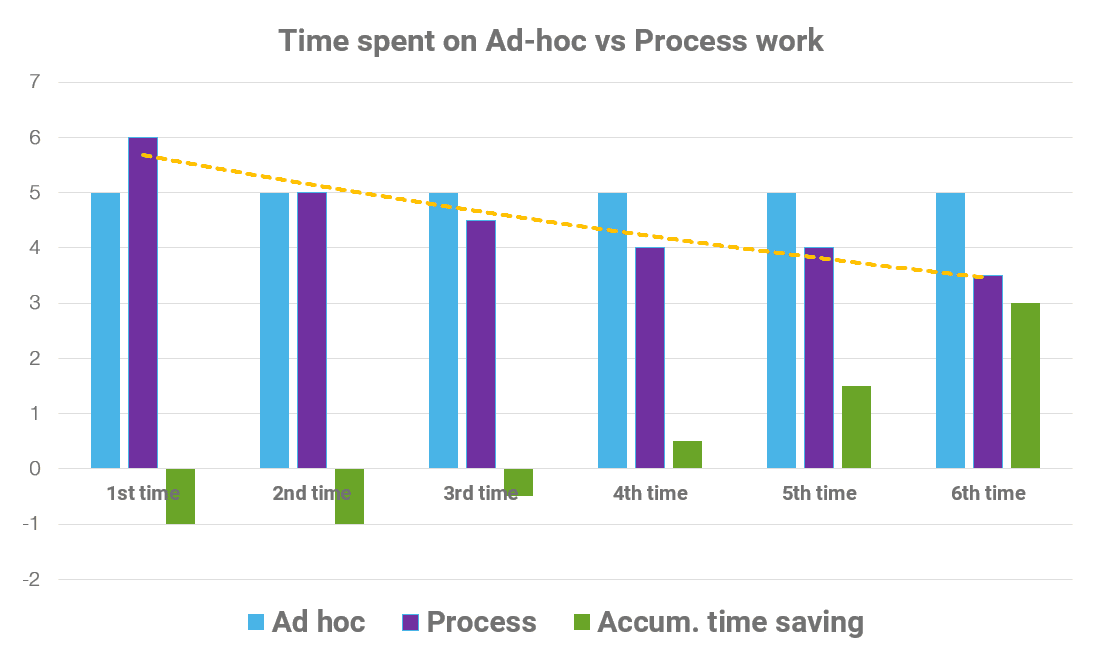
How to delegate work effectively

Effective work delegation is a much-overlooked leadership skill. If you can’t delegate work well then you can’t scale your time. Instead, you will gradually become tied up in operations and not be able to develop the business. This post has tips about more effective delegation of work.
I have seen some managers who considered their staff to be incapable of taking responsibility even for small routine tasks. These managers felt that staff failed to receive and act on even simple instructions. As a consequence, they failed to produce quality work through effective work delegation. Some ended up working under the mindset that…
“if you want something done, then you must do it yourself.”
The control freak’s motto
Some are control freaks that spend their days buried in detail and miss the helicopter view. Other managers end up firing people very frequently and spend their time in an ongoing reorganisation. But if you can’t delegate effectively then you can’t scale your work.
The normal way of work delegation leads to fire fighting
In the real world, however, the finance manager will too often know about invoicing on a general level only. The specifics of how it is done may have left the company with the previous employee. Or the knowledge may exist only as tacit knowledge with some other member of the team. He will, therefore, tell the new employee what little he knows and leave it for the new team member to figure out. If the new team member is very capable then she will design a good process. She will now know how to delegate invoicing effectively.
The challenge is that if she is a process designer, rather than an executer, then she may be over-qualified for the book keeping job and quickly start looking for something else. The finance manager may even feel threatened by her competence.
On the other hand, if the new employee is less capable, then she may feel lost and insecure. This means that she will not be able to get the invoices out on time. The finance manager and other colleagues will then have to spend a lot of time firefighting with her – not to mention dealing with the implications of errors and angry customers. At this point, she may be considered as incompetent (although she is perfectly capable of executing a well–defined prcess.
Effective work delegation is a two-way effort
What most forget is that effective work delegation is a collaborative effort.
In fact, the delegating manager has to prepare before he is ready to delegate. Let’s take the example of a finance manager who wants to delegate the invoicing of projects to a new team member. This manager will have to be able to answer the following questions before delegating:
- Why is this invoicing process different from normal invoicing?
- What are the results we look for?
- What happens if these results are not achieved?
- Who else works with this and where does the new team member contribute?
- What is our current process for this?
- Is that process only in my mind or is it actually the way it is done?
- Where are our invoicing policies and guidelines (if we have any)?
- Which systems do we use and how do they work?
- Who can help with this when I’m not there?

Try Gluu for free
Sign up for a 30-day trial.
No credit card required.
In the ideal world, the finance manager has a perfect overview and clear, mature and well-running process. She will then supervise the new team member to create the first invoice – gradually letting him take over completely. In this way, delegation works almost like an apprenticeship – the master teaching the apprentice. The new employee will get up to speed quickly and also consider her new manager to be highly capable.
You need to be able to do the work yourself first before you can delegate it
So, what can we conclude from this? Most finance managers don’t want to spend their time on invoicing. This is why some never bother to understand how it works in detail. When they don’t know how it works then they can’t answer the basic questions that are required for effective delegation. The irony is that as a consequence they will indirectly end up spending more time on invoicing – by putting out fires.
Invest a little time in business processes and ease work delegation
In reality, people treat many regular activities, which should mature into business processes, as people-dependent, ad-hoc activities. With this mindset, the leader’s time is inevitably consumed progressively by operations.
So to conclude, it’s better to invest some time upfront and save a lot later. As this graph demonstrates, you typically reap positive returns just after completing the activity four times.

(and now it is time for me to say that this is what Gluu’s business process platform can help you do – among other things.)
Frequently Asked Questions
Certainly, let’s examine further with specific tasks you should consider delegating. Start with administrative tasks, which can consume much of your time; assign these tasks to an executive assistant. These consist of scheduling meetings, managing your calendar, and dealing with daily correspondence. Next, think about delegating data-oriented duties such as data entry or administrative reports. These duties might be time consuming but they may not make direct contributions to your strategic aims. Additionally, assign tasks like social media management and website maintenance to your marketing and IT teams respectively. Remember, the goal is to save your time and energy for tasks where your strategic input or skills are most indispensable.
Now, let’s delve into the associated challenges or risks with delegation and find effective methods to handle them. One typical challenge involves team members resisting because they might feel burdened or ill-prepared for extra tasks. You can tackle this by ensuring they receive sufficient training and support, and by making an earnest effort to assign tasks based on individual skill sets. A potential risk might be the compromised quality of work. However, you can control this by encouraging open communication, setting unambiguous expectations, and establishing a system to monitor progress and provide reviewal.
The frequency or schedule for reviewing and adjusting work delegation doesn’t have a one-size-fits-all answer. It really depends on your team’s dynamics, the nature of the tasks, and your organization’s overall workflow. However, you should generally review at least once every quarter. This review allows you to evaluate task execution and make any necessary adjustments. Besides this quarterly review, you should also keep an open line of communication with your team and make adjustments as needed. Transition periods like project end or start, performance evaluations, or any major operational changes also provide ideal times to review your delegation strategy.
About the Author









